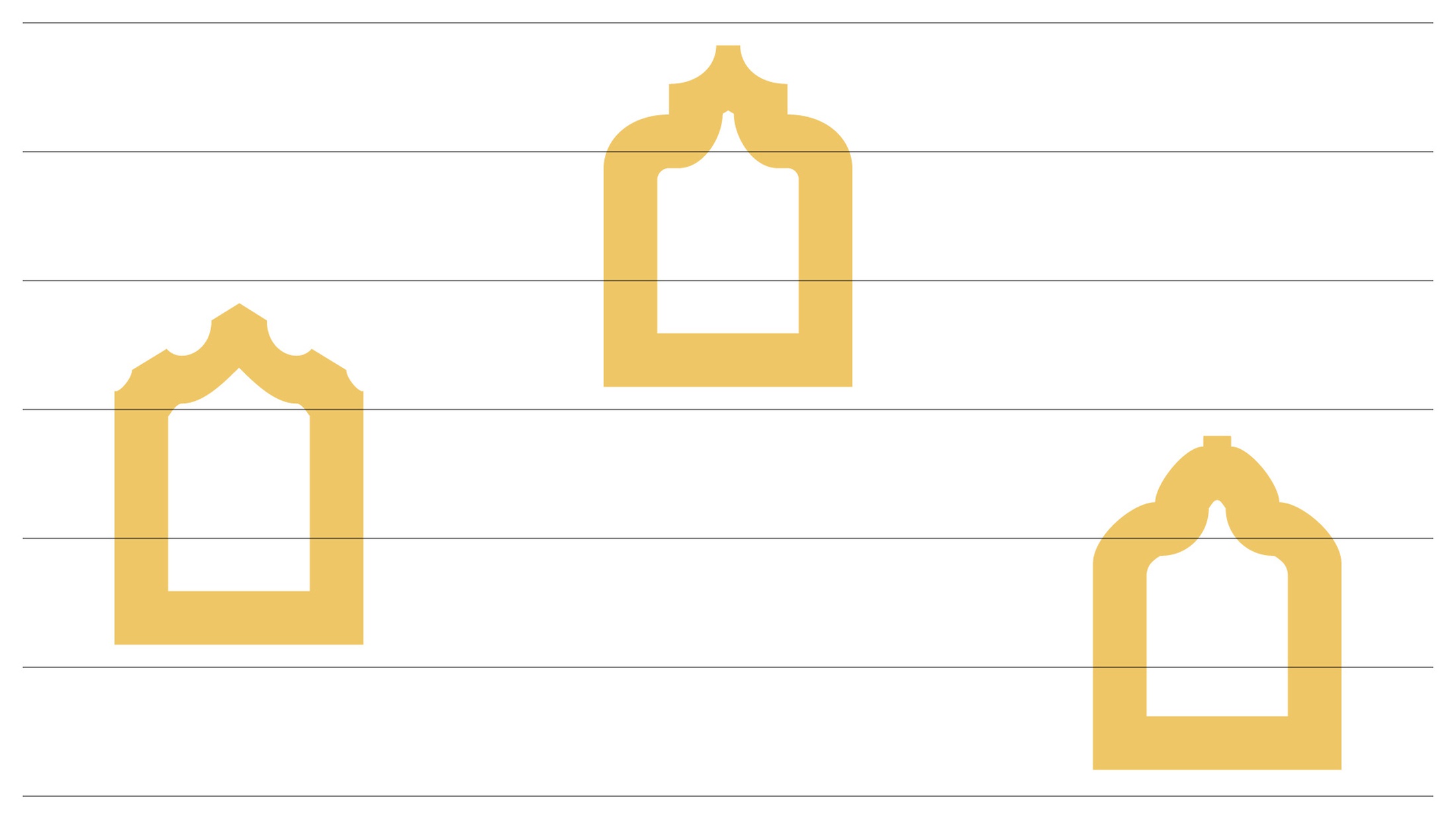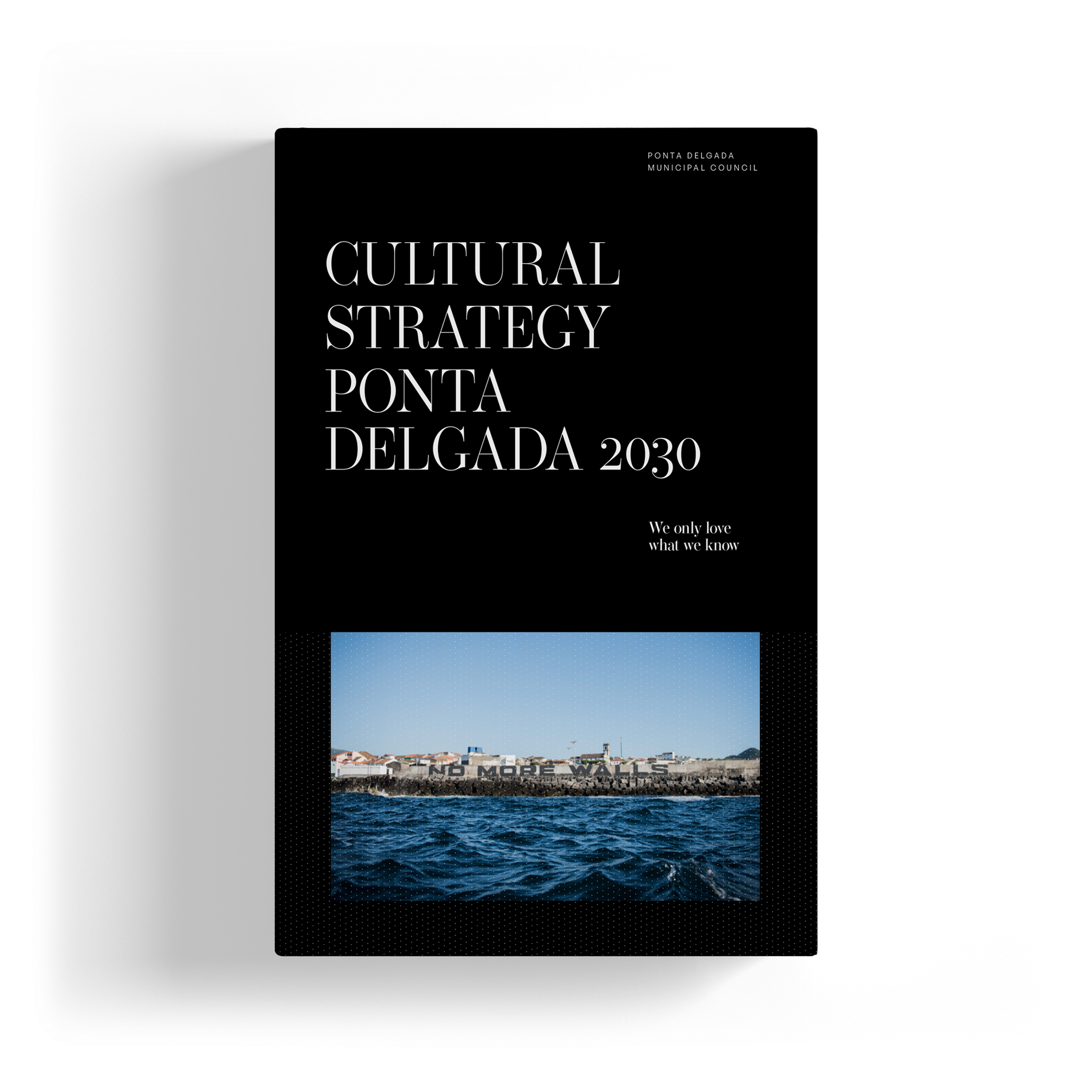Ponta Delgada Cultural Strategy
This is Ponta Delgada's first Cultural Strategy for the 2020-2030 decade and aims to mobilize the cultural and creative sector of the municipality and the people of Ponta Delgada. It is a municipal strategy, aligned with regional designs and which aims to respond to shared European and global challenges.
The Cultural Strategy Ponta Delgada 2030 is a work matrix that has triggered the mapping of the cultural ecosystem, revealing a wide array of stakeholders, a dense and lively associative movement and diverse cultural infrastructures. It was approved unanimously by the Municipality, on the 10th of november 2021. In it, the European Capital of Culture project arises as a unique moment for the affirmation of Ponta Delgada and the Azores, regionally, nationally and internationally.
This strategy is in alignment with the regional references and it intends to contribute to the resolution of shared European and global challenges. As such, it works on a municipal scale, with all of its 24 parishes, and it creates intermunicipal bridges, on the island and in all of the archipelago, regional and international partnerships. It suits the sectorial European agendas, but it also focuses on the historical and current role of Ponta Delgada in connecting the European, African and American continents.
The Cultural Strategy of Ponta Delgada "is the result of an intense process of crossing disciplinary areas, scales and actors". It was developed alongside the preparation of the Ponta Delgada – Azores 2027 candidacy, therefore, there was a strict articulation of listening processes and a mutual sharing of its discoveries.
Besides the portrait of the cultural and creative sector of the Municipality, this document shows its challenges and opportunities for the next decade, and it proposes a vision of a future built on four strategic axes that gather intervention programs, to be implemented gradually.

Were identified
four strategic axes:
1.
Sense of Place "addresses the issues of territorial asymmetries and mobility, both physical and cultural, and deepens the commitment to environmental preservation at the crossroads between creative economy and new models of tourism and living".
2.
Cultural and Creative Sector "is based on the consolidation of the contribution of this sector to economic development, to the development of skills suitable for the 21st century, to the processes of innovation and knowledge transfer, specifically between natural sciences and creativity".
3.
Cultural Citizenship "focuses on the power of culture in opening up possibilities for social mobility". It intends "to make local institutions, such as schools, associations and religious organisations, places of departure for contact with other cultural expressions".
4.
Global Archipelago "faces the urgency of blurring borders and deepening cooperation between public and private, between parishes, municipalities and the Region, between centralities and margins, between tradition and contemporaneity".
This Strategy shares with the Ponta Delgada – Azores 2027 bid the ambition of promoting a more professionalised cultural and creative sector and a fertile ecosystem, that is articulated and fully integrated in the urban and social development strategies.
To accomplish this vision, both the Cultural Strategy and European Capital of Culture bid promote projects that include the cultural and creative sector in all its value chain. It starts from the empowerment of the stakeholders and expands the offer of professional training linked to the performing arts and crafts, training, therefore, more technicians to support cultural and artistic practices and renewing resources for policy makers and professionals from cultural institutions.

